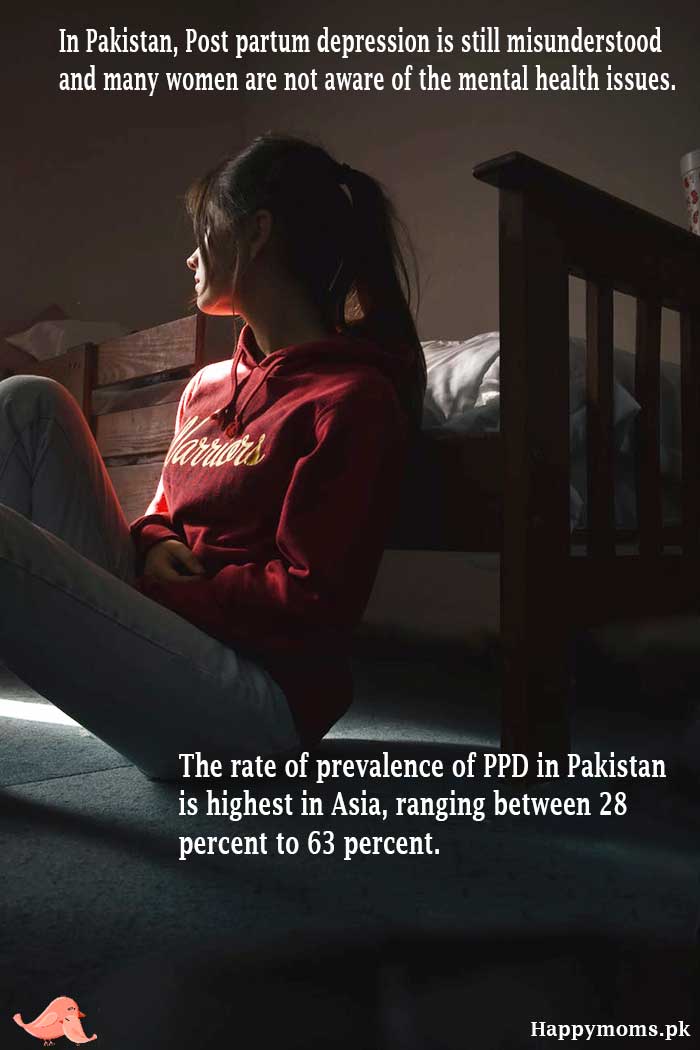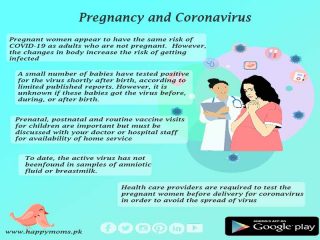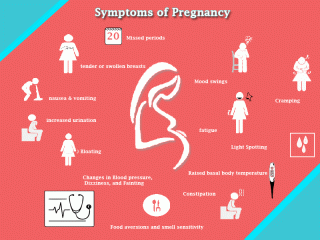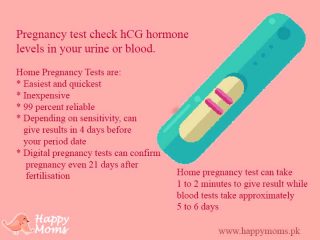
Giving birth is exhausting and can trigger mix feelings of joy and anxiety, and sometimes unexpectedly depression. After birth new mothers may experience baby blues which include mood swings, anxiety, crying and may last for two weeks, but others may experience more serious and long-lasting feeling of depression known as Post-Partum Depression (PPD).
Post-Partum Depression affect one in 10 women after birth and it can also affect fathers. If you have symptoms of PPD depression, seeking help and treatment will aid you cope with it better and bond with your baby.
Symptoms of postpartum depression can start following the weeks of childbirth or may even begin during pregnancy (American Psychiatric Association). In Pakistan, this topic is still misunderstood and many women are not aware of the mental health issues. According to an article published in The National Center for Biotechnology Information emphasizes that the rate of prevalence of PPD in Pakistan is highest in Asia, ranging from 28 percent to 63 percent.
Postpartum depression occurs because of the major hormonal changes that your body goes through during pregnancy and childbirth and it includes many other factors too. Postpartum psychosis is rare and more severe condition which require treatment in hospital.
Symptoms
Feeling anxious and down after delivery, for up to two weeks is common and is considered normal. This is often termed as Baby blues. If your symptoms last for longer than two weeks you may have postpartum depression (PPD), it can start any time in first year after delivery. Symptoms of baby blues vary from symptoms of depression; they can be mild or sever.
Symptoms of Baby blues:
- Feeling overwhelmed
- Mood swings
- Anxiety
- Sadness
- Irritability
- Episodes of Crying
- Lack of concentration
- Problem eating
- Trouble sleeping
Symptoms of Postpartum depression:
Postpartum depression may often confuse with the baby blues, but the signs and symptoms are more sever and last longer and ultimately affect with daily routine and activities. Signs of depression usually begin after delivery or may start later within first year of delivery. And in some cases, during pregnancy. Symptoms may include:
- Severe mood swings
- Excessive crying
- Feeling down or depressed
- Difficulty bonding with the baby
- Losing interest in family and friends
- Eating less or eating much more than usual
- trouble sleeping or sleeping too much
- Feeling fatigue or loss of energy
- less interest and desire to do activities you used to enjoy
- Intense irritability and anger
- Restlessness
- Fear of not being a good mother
- Hopelessness
- Feelings of worthlessness or inadequacy
- Reduced ability to think clearly, concentrate
- Trouble making decisions
- Intense anxiety and panic attacks
- Thoughts of harming yourself or your baby
- Recurring thoughts of death or suicide
If left untreated, it may prolong for many months or longer.
Symptoms of Postpartum psychosis:
Postpartum psychosis is a rare condition which show symptoms from first week after childbirth and signs are more severe. Symptoms include:
- Feeling confuse or disoriented.
- Compulsive thoughts about baby
- Trouble sleeping
- Hallucinations
- Delusions
- Agitation
- Paranoia
- Suicidal attempts to harm yourself or your baby
Postpartum psychosis requires instant treatment as it may lead to life threatening situations.
Causes of depression after delivery:
Postpartum depression is caused by combination of different factors, that may include hormonal changes, emotional, cultural and genetical factors. Women with anxiety during pregnancy or those having baby blues are more likely to develop PPD. Some of the causes are:
- Physical exhaustion during childbirth,
- Health problems
- Depression during pregnancy
- History of mental health
- No support from people around
- Stressful life conditions
- Recent grief in life
- Poor relationship with husband
- New change as a parent and
- Lack of sleep can also trigger it.
Risk and Prevention
Who is at the risk of getting PPD?
There are number of factors which increase the risk of getting PPD, including:
- Age; young people are at higher risk
- History of depression
- Depression during pregnancy
- Uncertainty about pregnancy
- Women with premenstrual dysphoric disorder (PMDD)
- Being alone or no social help
- Problems in married life
Postnatal depression can leave you feeling lonely, distressed and anxious, but the right support and effective treatments can help you with it. Read our article on Treatments for Postpartum depression.
How to prevent getting into PPD?
Getting help as early as possible can help you prevent getting into depression. You can do the following things:
- During pregnancy if you feel distressed, have severe mood swings or anxiety related to pregnancy or baby, it is better to talk to your doctor and rule out any complications after delivery
- If u have a history of depression in previous pregnancy (or pregnancies), inform your doctor so they can monitor you during pregnancy and offer help. After delivery, your doctor may offer early postpartum check and help you take therapy or medicines early if required.
- There is no study-based evidence that you prevent postpartum depression, but you can maintain healthy lifestyle with healthy eating and regular exercise.
- If you or your family have a history of mental health problems, its always good to inform your doctor beforehand.
Many people and even doctors in Pakistan do not take postpartum depression seriously, but discussing the issue with your doctor and family members and taking serious measures can help you deal with it better.
Myths about postpartum depression
- postnatal depression is less severe than other types of depression – in fact, it’s as serious as other types of depression
- postnatal depression is entirely caused by hormonal changes – it’s actually caused by many different factors
- postnatal depression will soon pass – unlike the “baby blues”, postnatal depression can persist for months if left untreated and in a minority of cases it can become a long-term problem.
- postnatal depression only affects women – research has actually found that up to 1 in 10 new fathers become depressed after having a baby
Want to join a support group for PPD? Join Happy moms Facebook Support Group
This article is for informational purposes only, and is not meant to offer medical advice.




